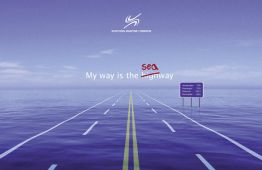Project Aim
The NMC project is means for efficient, safe and sustainable transportation, connecting coastal areas and well enhancing regional development in the North Sea Region and the Northern Periphery Area. The project addresses the following issues: the development of regional maritime clusters, the promotion of Short Sea Shipping (SSS), transport in the petroleum and the seafood sector and risk management strategies. The project will be implemented in close co-operation with a similar project in the Interreg IIIB Northern Periphery Programme.
Project implementation and results
Activities
The NMC project has initiated the establishment of the Safety at Sea project in North Sea region and Northern Periphery region. The NMC conference in Kirkenes in 2003 facilitated a contact between the Ministry of Transport in Russia and Ministry of Fishery and Coastal Affairs in Norway, which lead to the establishment of standing committees between the two countries on maritime safety in the Barents region.
Joint transnational strategy
Mode of cooperation
The most significant way to encourage relevant stakeholders has been to pursue concrete and realistic sub-projects on SSS initiatives while involving the private sector as the key participants and decision makers. A good way of encouraging the relevant groups was through the Business to Business (B2B) meetings and direct contacts between the private sectors. The Northern Maritime Corridor (NMC) is the term for a sea based transportation corridor that stretches from Northern Norway and North West Russia to the continent connecting the coastal areas of North Sea and the Northern Periphery. The project Northern Maritime Corridor (NMC) has developed efficient and sustainable maritime transport solutions, connecting the coastal regions bordering the North Sea and manufacturing industry in the North Sea basin with industrial development in the Barents region. The core approach has been to create an arena for networking, involve key actors from both the private sector and public sector and establish region-to-region cooperation. The region-to-region cooperation has in particular been materialised through the above mentioned SSS initiatives. In addition business-to-business cooperation has materialised between ports and industries, like in the seafood industry. The cooperation with the Shortsea Promotion Centre in Norway on the Efficient transport Chain project has been particularly successful in the sense that the SPCN and NMC facilitated the development of tender specifications for an IT tool to improve the business processes for shipping lines, and then three shipping lines took the tender forward and purchased the IT tool on their own costs.
A major means has been to organise Regional Maritime Clusters involving all relevant stakeholders, inviting stakeholders to transnational events under the project, encourage participation in transnational B2B events. In addition, workshops and international NMC conferences, comprising of region-to-region contacts and business-to-business contacts, have been encouraging. In this respect the establishment of regional maritime clusters has overall been instrumental.
Quite a wide range of sectors were anticipated to participate in the project. In overall terms all the anticipated sectors have been involved, but it differs from region to region to what extent of which sectors have been participating to the extent anticipated. It was most challenging to involve the forwarders and to some extent goods owners and producers. The NMC project as such has been quite unique in the sense that two IIIB programmes (Northern Periphery and North Sea) have implemented their parallel projects fully into one project. The project participants and external persons have not seen anything but one comprehensive and consistent project. The NMC project is being followed up by the NMC II project in the North Sea region with cooperation agreements with the former Northern Periphery partners. In addition the NMC project has exchanged information with other Interreg projects like the REMARCC project, the NTN project and the Safety at Sea project. The projects have been presented in NMC conferences and the NMC project has been presented in their workshops/conferences. The cooperation could have been more extensive in order to gain more solid synergy effects. Links were also established with interregional political organisations like the North Sea Commission and the Conference of Peripheral and Maritime Regions of Europe – CPMR.
Impact of the project
Long-term achievements
The project has promoted a number of short sea shipping (SSS) initiatives (14 altogether) and some of them are or are on the threshold of being implemented. A comprehensive network has been established comprising of 20 regions in 9 countries (also including partners in the parallel NPP project), in particular the network with Russian participants from North West Russia and central institutions in Russia. The network comprises of both the private sector and public sector, with an unprecedented high share of participants from the private sector. |

North Seaway illustrated an alternative for road transport
Partners Provincie West-Vlaanderen, BE
Vest-Agder Fylkeskommune, NO
Sogn and Fjordane County Municipality, NO
Sør-Trøndelag Fylkeskommune, NO
Groningen Seaports, NL
City of Cuxhaven, DE
Hordaland Fylkeskommune, NO
Møre and Romsdal Fylkeskommune, NO
Amsterdam Port Authority, NL
Aberdeenshire Council, UK
LP:
Rogaland County Council
Project Manager
Gunnar Odd Eiterjord
Rogaland County Council Arkitekt Eckhoffsgate 1
P.O. Box 130 N-4001 Stavanger
Norway
guei@rogfk.no
www.northernmaritimecorridor.no
Tel: +47 51 51 6911
Measure: 2.3
Start Date: 01 March 2002
End Date: 31 December 2005
ERDF Grant:
 1.538.500,00 1.538.500,00
Total Eligible Sum:
 3.077.000,00 3.077.000,00
|